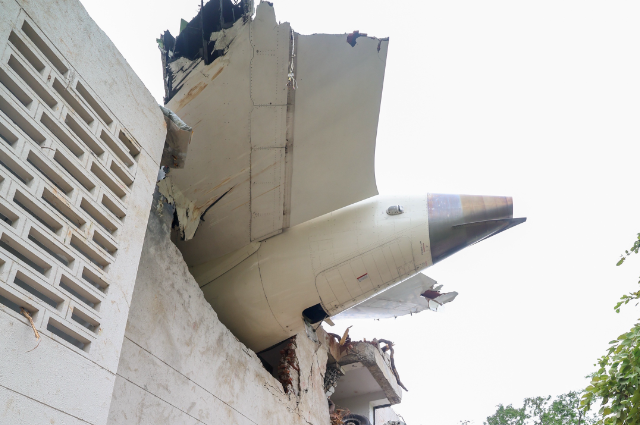On June 12th, 2025, a tragic incident followed... a plane crash in Ahmedabad, where 241 people lost their lives. A few days after the incident, Tata Sons announced a compensation of 1 crore to the family of every member who died in the plane crash. In addition to it, Air India (owned by Tata Sons) has also come forward with an additional compensation of 25 lakhs. There has been a long debate going on, calling the compensation a PR stunt to avoid lawsuits and public backlash for the mishap, also questions like “Does life carry class labels on them? And is a life on an international flight worth more than a life on a crowded train?”
Compensation replacing grief
There is a symbolic way of representing the value of life in capitalism, which is putting a Rupee or a Dollar on someone’s life by the giant corporations or government to admit, “This is all we can do”. It can be an attempt to honour it and also an admission of limits. On one hand, society speaks with pity to say “we see your loss” and on the other hand, it confesses “This is all we can do”. We live in a world where everything is monetized, from labour, resources to entertainment and happiness, then why not human lives?
Insurance companies, compensation policies, and legal frameworks operate on the same logic, a person’s worth lies in their ability to contribute to the economic structure. For a breadwinner, the calculation is “remaining economic tenure x salary”. Even in law, life has been quantified; a train derailment, for instance, the government may announce ₹5 lakh per life lost, a flat rate, a standardized figure.
This reveals a dangerous situation, when life becomes a commodity, it’s treated as replaceable. The focus shifts from justice or accountability to settlement and closure. The idea of “monetary compensation” shows the limits of modern systems. It’s easier to write a cheque than reform unsafe practices, hold the guilty accountable, and provide long-term emotional and social support.We are reflecting a worldview where even existence itself can be converted into numbers on a balance sheet.
Social Media Outrage
There has been a long debate on social media after this incident. In India, the vast economic divide has long shaped who gets to speak and who is silenced. For generations, economic struggles and limited access to education have conditioned people not to demand accountability for their losses. It almost runs in our blood to accept what is handed down by those in power. In the recent Ahmedabad plane crash, households were devastated, families lost their only breadwinner, a daughter was lost to a parent, and an entire bloodline was wiped out in seconds. Yet the response from a corporate giant like Tata was telling. There was no heartfelt message of apology, no visible effort to connect with the grief of those left behind. Instead, what followed was a heavy monetary compensation, a transaction dressed up as generosity. But was it truly generosity, or a calculated move to protect their image?
The passengers on this flight included many foreigners and Indians travelling to London. An international tragedy of this scale risks attracting global scrutiny, threatening not just lawsuits but also the reputation of an empire. The ₹1 crore compensation was less about the value of human life and more about preemptively shutting down outrage about keeping the brand untarnished and preventing calls to boycott Tata. It’s important to see that for what it is, damage control. For grieving families, there is little room to resist. They accept the compensation not out of greed or ignorance but because the alternative, a lengthy legal battle against a billion-dollar conglomerate, feels impossible. In a system where justice is expensive and time-consuming, financial aid often becomes the only option for the powerless. And so, while the world moves on, the question lingers, have we normalized putting a price on grief, and does this transactional closure serve justice, or simply convenience?
Putting a price on someone’s life can never heal the pain or fix what’s broken. It might help families survive financially, but it doesn’t bring justice or real change. True accountability means preventing such tragedies and supporting people beyond money. Until then, compensation will remain a quick fix, not a solution.

